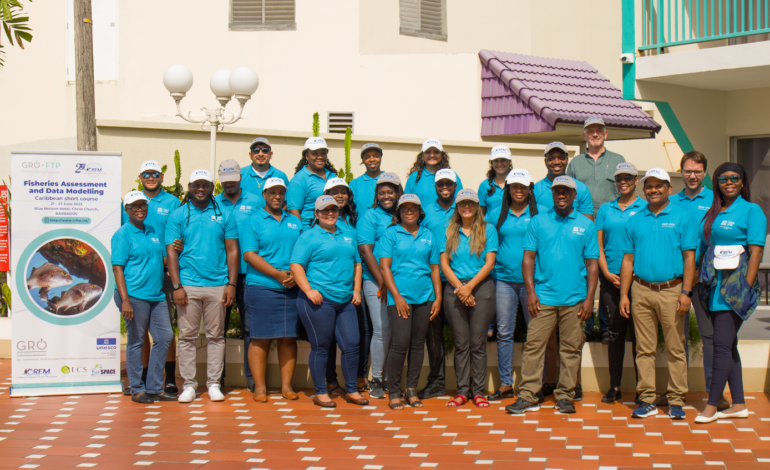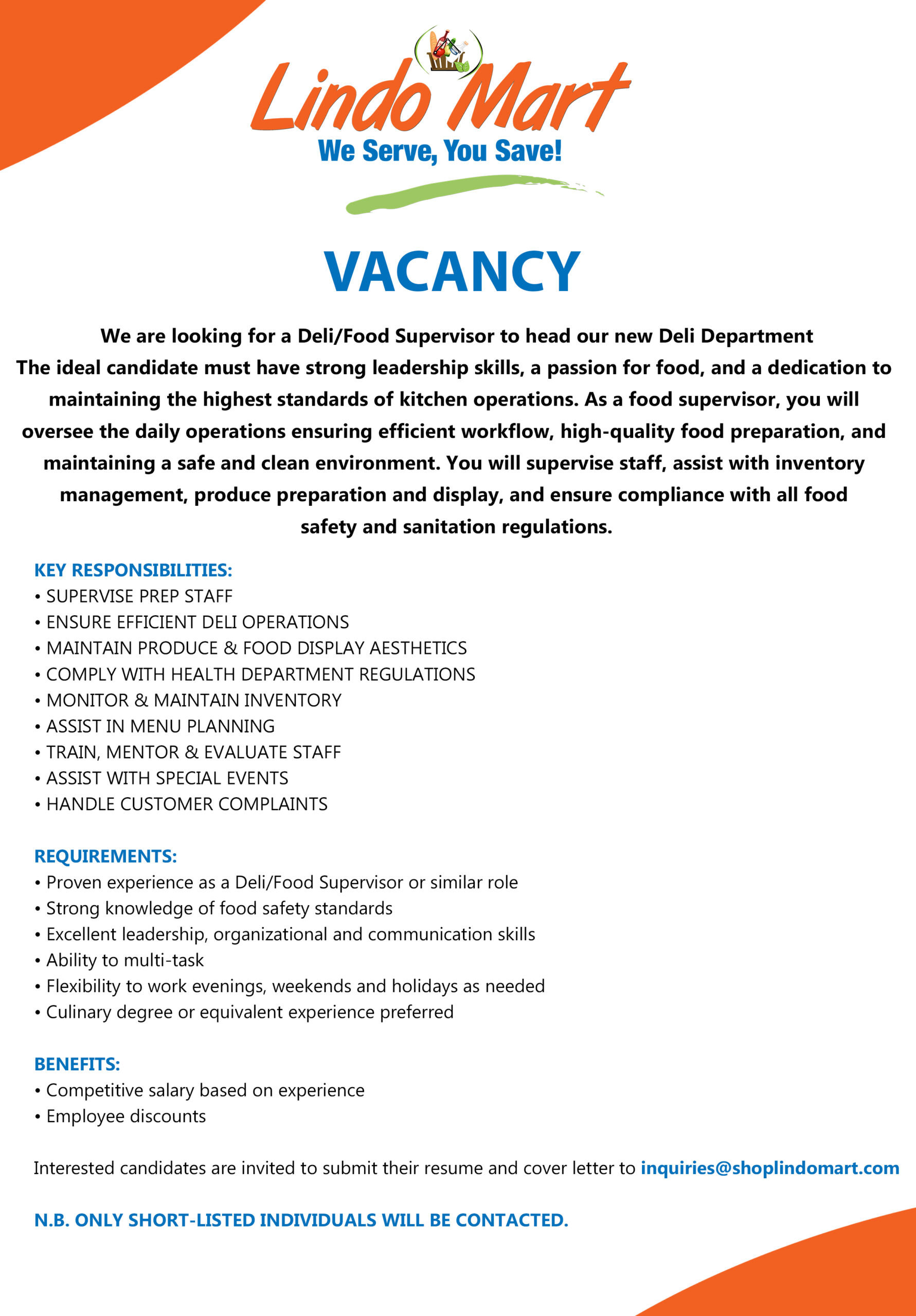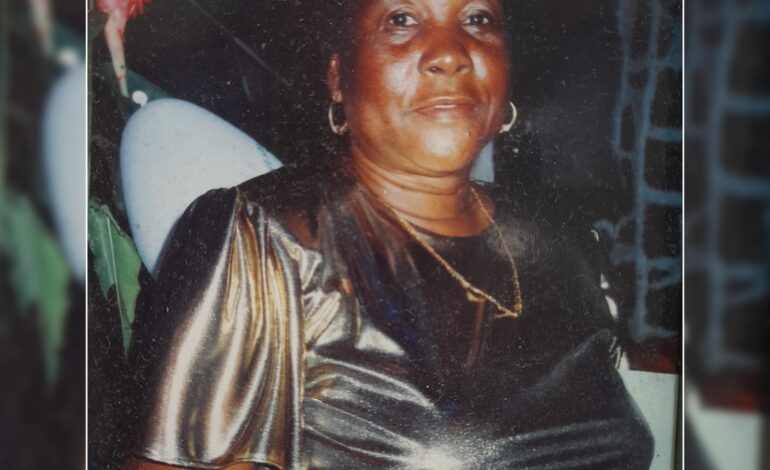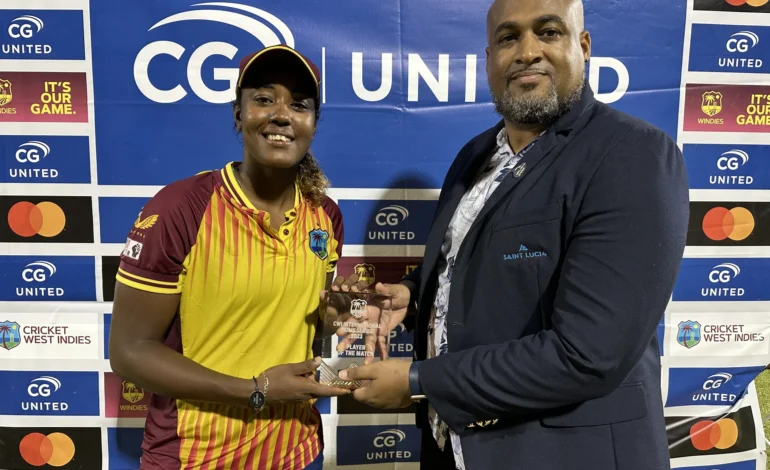
Belize City, Friday, 7 July 2023 (CRFM)—A cadre of eighteen (18) Fisheries personnel from the Caribbean recently completed a customized Caribbean short course on Fisheries Assessment and Data Modelling, convened in Barbados from 21-27 June 2023, by the Caribbean Regional Fisheries Mechanism (CRFM). The training was supported by the GRÓ-Fisheries Training Programme (or GRÓ-FTP), formerly the United Nations University Fisheries Training Programme (UNU-FTP), under the auspices of the United Nations, Educational, Scientific and Cultural Organization (UNESCO).
The lead trainers were Dr. Einar Hjorleifsson, Fisheries Scientist at the Marine and Freshwater Research Institute Iceland, and Dr. Warsha Singh, GRÓ-FTP stock assessment specialist, who worked in partnership with the CRFM’s senior technical team: Dr. Sandra Grant, Deputy Executive Director; Dr. Pranaya Parida, Fisheries Scientist; and Mrs. June Masters, Statistics and Information Analyst, to deliver the in-person training which spanned five and a half days. This was a follow-up to the online segment of the training convened over 4 days on June 9, 12, 14, and 16.
Through their longstanding partnership, the CRFM, based in Belize, and GRÓ-FTP, based in Iceland, collaborated on developing and delivering this course, to strengthen the capacity of key stock assessment and fisheries data analysis specialists in the Caribbean. Part-funding was provided by some CRFM Member States, as well as the Biodiversity Support Programme for ACP Coastal Environments (BioSPACE), funded by the European Union and implemented by the Organisation of Eastern Caribbean States (OECS) Commission.
The Fisheries personnel who completed the Fisheries Assessment and Data Modelling course—a ‘training of trainers’ initiative—have returned to their respective countries equipped with new knowledge and skills to share with their national teams. Six GRÓ-FTP alumni from the Caribbean participated in the training as resource persons, to reinforce their knowledge and provide training support to other course participants.
In addressing the participants during the training, Dr. Grant highlighted the critical importance of performing regular assessments of fisheries data collected from fishers to support evidence-based decision-making, to inform policymakers, and to give useful feedback to fishers and other stakeholders.
Dr. Grant added: “This year marks the CRFM’s 20th Anniversary—a year when we aim to celebrate our achievements over the past two decades. As the regional fisheries body responsible to coordinate and promote regional cooperation for the sustainable use, management, and conservation of our living marine resources and the marine ecosystem, this year we hope to inspire a fresh vision for the fisheries and aquaculture sector … One of our objectives for this year’s 20th Anniversary Celebrations is to highlight the importance of data collection and assessment to sustainable fisheries management.”
The participants, who all received certificates upon completion of the course last Thursday, believe that the training received will not just strengthen their professional capacities for performing assessments and modeling fisheries data—they furthermore see the ‘training of trainers’ course as the start of a regional collaboration to strengthen their collective work through better networking.
Dr. Tomas Willems, Head of the Statistics and Research Division, Fisheries Department, Suriname, said: “The course was very timely and relevant for Suriname, which is currently in the process of improving its fisheries
The customized Fisheries Assessment and Data Modelling short course utilized the R software, which is a free tool for statistical computing and graphics. Dr. Singh, GRÓ-FTP Specialist, noted the joint efforts of the CRFM and GRÓ-FTP to establish a critical mass of R users and people with data analysis and assessment knowledge to support a data-driven culture for sustainable fisheries management in the Caribbean.
Derrick Theophile, Chief Fisheries Officer, Dominica, noted that, “This training programme provided the opportunity to leverage perhaps some of the most powerful tools for understanding and using fisheries data more effectively and precisely, to generate substantive results for management—those tools being the R statistical software and interpersonal networking and sharing.” He added that “…our collective capacities are raised, and we are better equipped to collaboratively manage our shared fishery resources.”
Anginette Murray, Statistics and Data Manager, National Fisheries Authority, Jamaica said: “The ease with which concepts were taught and fisheries data assessed is invaluable in enhancing data collection in Jamaica and by extension producing timelier reports. Additionally, the future of Fisheries Science in the region looks quite promising. I believe with the networking established with the fellow scientists, Jamaica will benefit from the ongoing collaboration in the management of our valuable fisheries resources, both regionally and globally.”
This was the third stock assessment training course offered under the partnership between the CRFM and GRÓ-FTP, which dates back to 2008. GRÓ-FTP has also assisted with training needs assessments for CRFM Member States, in addition to on-the-ground technical support and contributions to CRFM Scientific meetings. The partners have also collaborated to provide training in advanced leadership, project management, sanitary and phytosanitary measures, and the fisheries value chain, among others. Furthermore, dozens of public and private sector professionals from the Caribbean have also benefitted from 6-month fellowships and degree programmes offered by GRÓ-FTP in Iceland.







